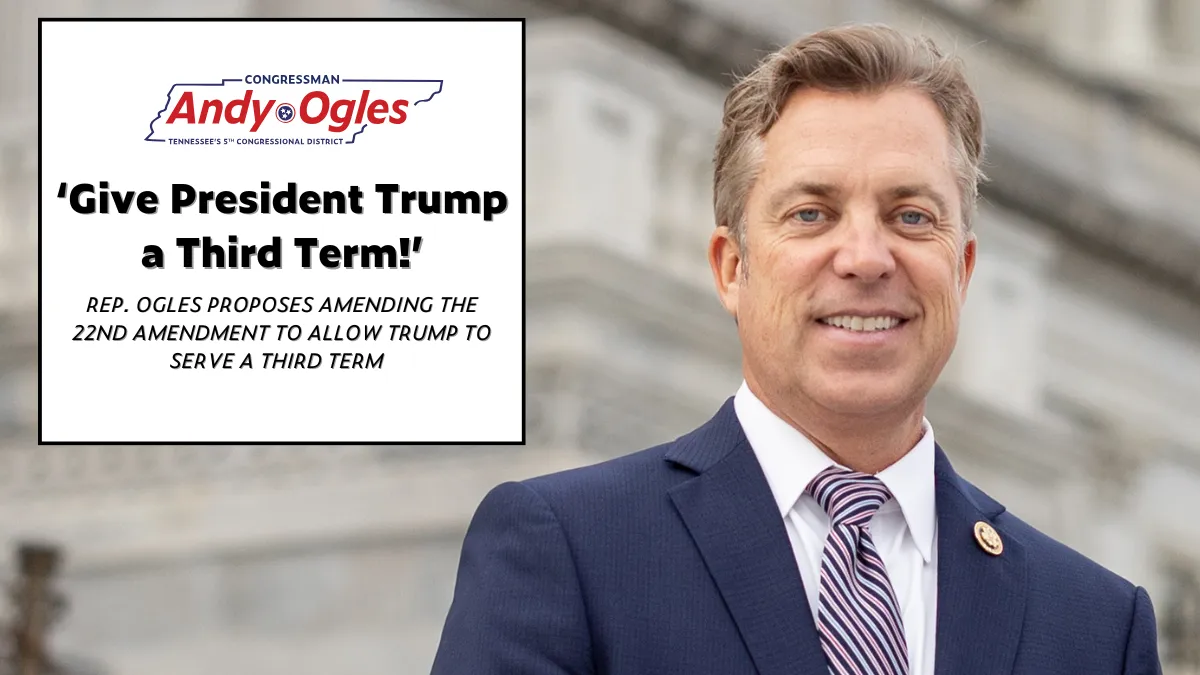Andy Ogles Sparks Controversy with Bold Proposal to Amend Presidential Term Limits
In a move that has sent shockwaves through the political landscape, Tennessee Congressman Andy Ogles has introduced a controversial proposal to amend the 22nd Amendment of the U.S. Constitution, potentially reshaping the fundamental rules of presidential succession. The bold initiative, which would allow former President Donald Trump to potentially serve a third term, has ignited a fierce debate about democratic norms and executive power.
Background of the Proposal
Ogles, a staunch supporter of Donald Trump, has put forward a legislative effort that would dramatically alter the current presidential term limit restrictions. The proposed amendment comes just days into what would hypothetically be Trump’s second term, signaling the congressman’s unwavering belief in the former president’s leadership capabilities.
Key Points of the Proposed Amendment
- Potential for Third Presidential Term: The amendment specifically targets the current two-term limit
- Targeted Approach: Prevents former Presidents like Obama, Bush, and Clinton from returning to office
- Explicit Support for Trump’s Leadership
Political Implications
The proposal has created a significant rift in political circles, with reactions ranging from enthusiastic support to vehement opposition. Ogles argues that the amendment is necessary to provide Trump with the resources to “correct the disastrous course set by the Biden administration.”
“He has proven himself,” Ogles stated, defending the potential constitutional change.
Constitutional Context
The 22nd Amendment, ratified in 1951 following Franklin D. Roosevelt’s four-term presidency, has long been considered a cornerstone of American democratic governance. Ogles’ proposal challenges this long-standing precedent, raising critical questions about the balance of political power.
Challenges and Controversy
The amendment faces significant hurdles, requiring a two-thirds majority in both the House and Senate for approval. Critics argue that the proposal:
- Undermines democratic principles
- Creates a dangerous precedent for executive power
- Threatens the fundamental checks and balances of the U.S. government
Political Landscape
The proposal reflects the ongoing divisions within the Republican Party. Some view it as a strategic move to solidify Trump’s influence, while others see it as a potential threat to traditional conservative values.
Public and Political Reaction
Reactions have been predictably polarized. Supporters praise Ogles for championing Trump’s continued leadership, while critics condemn the move as an unprecedented attack on constitutional norms.
Broader Implications
The amendment has reignited discussions about:
1. The limits of presidential authority
2. The role of executive power in modern governance
3. The ongoing influence of Donald Trump within the Republican Party
Potential Consequences
Legal experts warn of a potential “slippery slope” that could lead to increased consolidation of presidential power. The proposal raises fundamental questions about the nature of term limits and democratic representation.
Conclusion
As the debate unfolds, Andy Ogles’ proposal remains a lightning rod for political discourse. It highlights the deep political divisions in the United States and the ongoing struggle to define the boundaries of presidential power.
The story continues to develop, with political observers watching closely to see how this unprecedented proposal might reshape the American political landscape.
Disclaimer: This article represents a journalistic analysis of the current political situation and does not endorse any particular political stance.






Leave a Comment